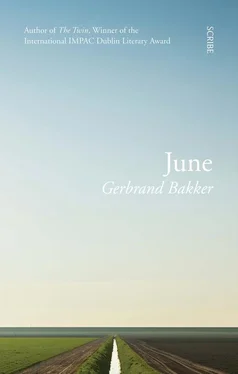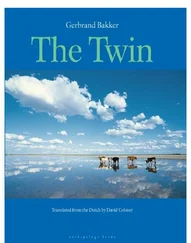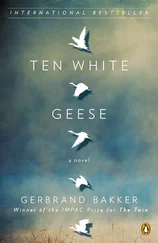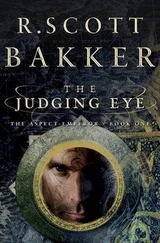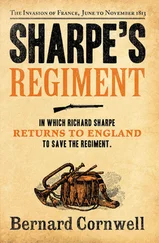‘Hmm.’
‘From when the Queen came.’
‘The seventeenth of June, nineteen sixty-nine.’
‘What?’
‘That was when the old Queen was here.’
‘Do you remember it?’
‘Not at all.’
‘Oh. You’re in them actually. The photos.’
‘I know.’ Jan Kaan stands up. ‘I’ll get back to work.’
Jan Kaan walks away from the bench.
The baker stands up too quickly and one of his hands, the one he just used to wipe the sweat off his forehead, slides off the ivory knob. He falls to his knees. It hurts terribly. All those sharp shells. Jabbing into his hands too. Jan Kaan turns back to look at him, apparently wavering. The baker realises that he can’t get up again without help. Help either from the man opposite him or from his stick. He gropes around for the stick. Jan Kaan takes a couple of steps towards him. ‘No,’ says the baker. ‘Just let me sit down for a minute.’ He sees the scene from above, as if he’s one of the two birds in the linden tree. Old man on his knees. Much younger man, in T-shirt and shorts, looking down on him, ordered not to lend a helping hand. ‘I wanted…’ says the baker.
‘Yes?’ says Jan Kaan, in a tone that isn’t even unfriendly.
‘No… I…’
‘Do you want me to help you or not?’
The baker stares up at him without answering.
‘Look, um…’ Jan Kaan is clearly trying to decide what to call him.
‘Just call me…’ Call me what? Mr Blom? Herm? Blom? Baker? ‘I actually want…’ He’s got hold of his walking stick now and, planting the point in the shell path, slowly pushes himself up. With a pounding in his temples, he is now standing more or less straight, longing desperately for his hat and a large glass of cold water. He goes to brush the grit off his knees, then leaves it. Then he says, ‘Here,’ pulling the envelope with the photo and the piece of cardboard out of his back pocket and pressing it into Jan Kaan’s hand. He doesn’t care any more, he can tear the envelope open right here on the spot if he wants to. ‘My wife left me,’ he says. ‘A long time ago now.’ As if that explains the picture. He can leave the envelope sealed too if he likes, and look at the photo later. Jan Kaan stands there, hesitating, the envelope in his hand. The baker realises that he doesn’t have any pockets, not on the T-shirt and not in his shorts, which are the kind people wear for running. ‘She couldn’t take it any more, living with me.’ Now I’ll turn around, the baker thinks, and then I’ll walk to the gate, remaining calm and collected the whole time. I can manage that, especially if I use the stick properly. One, two three, swing; one, two, three, swing.
‘Where is everybody?’
He turns back. Where is everybody? Jan Kaan is standing just like before, staring at the envelope he doesn’t have anywhere to put. ‘Everybody who?’
‘In the village.’
‘What do you mean?’
‘It’s like it’s deserted.’
‘It’s not that bad, is it?’ What does he mean?
Jan Kaan walks back to the grave and lays the envelope on the edge. He runs a hand over the back of his neck and sits down again. The baker swings his stick. One, two, three, swing. When he hears Jan Kaan say, quietly but clearly, ‘Thanks,’ he doesn’t slow down. One, two, three, swing. But that doesn’t mean he didn’t hear it.
Klaas’s wife is standing on the far side of the ditch. ‘Mr Kaan!’ she shouts. ‘Do you know what Eben-Ezer means?’
‘Eben-Ezer? That’s what Kager’s house is called, isn’t it?’
‘Yes, but what’s it mean?’
‘Not a clue. Does it have to mean something?’
‘I was just wondering. And Linquenda?’
‘You ask some difficult questions.’
‘So you don’t know either?’
‘No.’
She goes back into the house, as if she came out especially to ask him. He’s put the chainsaw down on the lawn for a minute. After getting it out of the garage he’d carried it through the back garden on his way to the side of the house, counting six more trees on the way that could come down too. To think that earlier in the day he’d smirked about that guy from the city planting his wood. ‘Rekel, get out of here,’ he says to the Labrador, which had sat between him and his daughter-in-law during their conversation, turning his head faultlessly to look at whoever was speaking. The dog only half obeys him, sitting down again where Zeeger was standing, while Zeeger moves on to the bleeding, patchy chestnut. It’s the middle one, the biggest of the three. A letter arrived from the council, quite a while ago now, urgently advising people to leave infected trees alone. So Zeeger Kaan is not cutting down a sick tree, no, he’s felling a tree he sees as a weed. A tree that’s growing somewhere it’s not wanted. Rekel bumps into his legs. ‘Get, I said!’ The dog whimpers and reluctantly retreats to the corner of the house, where he sits down on the brick path.
Zeeger has filled the tank to brimming with the fuel mixture, the oil tank is full as well, and he’s even cleaned the air filter. He pulls out the choke and presses the hand guard with his wrist but the brake is already on. With one foot in the handle to keep the saw on the ground, he pulls the starter and immediately groans. Incomprehensible, these machines. One day the saw kicks over immediately, another you have to keep pulling it. He’s also never sure whether to pull out the choke or press it in. Now he pushes it in and pulls the starter again. No, that’s not right, he hears that immediately. He has to have the choke out. After three or four tugs, the engine starts. Rekel tries to stay sitting there, but then the racket gets too much and he stands up and retreats to the bridge. Zeeger pulls the hand guard back and the chain starts to turn. Long ago he did a one-day course. He no longer knows exactly what all the different parts of the felling process are called, but he does remember that he has to cut a triangle out of the trunk on the side he wants the tree to fall, and then cut the bark on the sides of the triangle before starting to really saw into the trunk from the other side at the height of the cuts in the back — the felling cut. The tree must be a good twelve metres tall: he has to make it fall diagonally, between the corner of the house and the third chestnut. The other direction isn’t an option: half the tree would end up on the road. Fortunately, most of the strawberry plants in the vegetable garden are bare. I must be mad, he thinks when he has to put the chainsaw down on the lawn halfway through the felling because the sweat has started to run into his eyes. He pulls a hanky out of his pocket and tries to dry his face. He sees Rekel sniffing around near the open barn doors. The trees have been here almost forty years now. When he planted them, the labourer was still living here. ‘You really want to?’ said the labourer. ‘Yes, I really want to,’ he answered, and dug three holes. The labourer’s two children thought it was fun, they watered the three saplings faithfully for weeks. He scrunches away his hanky, disengages the brake and sticks the blade in the cut he’s already made. Soon the wood starts to creak. He takes a quick step back and to the side. The chestnut tips slowly through the warm air and slams down onto the ground with an unexpectedly loud crash, while twigs and brown leaves swish up. Shame about the French beans that were left, he thinks, turning off the chainsaw and going into the house. And the last few strawberries too, of course. In the kitchen he has a good look around. It’s lighter. ‘Hmm,’ he says. It could be even lighter. Before going out again, he fetches a towel from the bathroom and drinks two glasses of water. Rekel is already waiting for him on the back doorstep. ‘No, Rekel, I’m not finished yet,’ he says. He waves the dog away with the towel. ‘Go over to the other side of the ditch.’
Читать дальше
